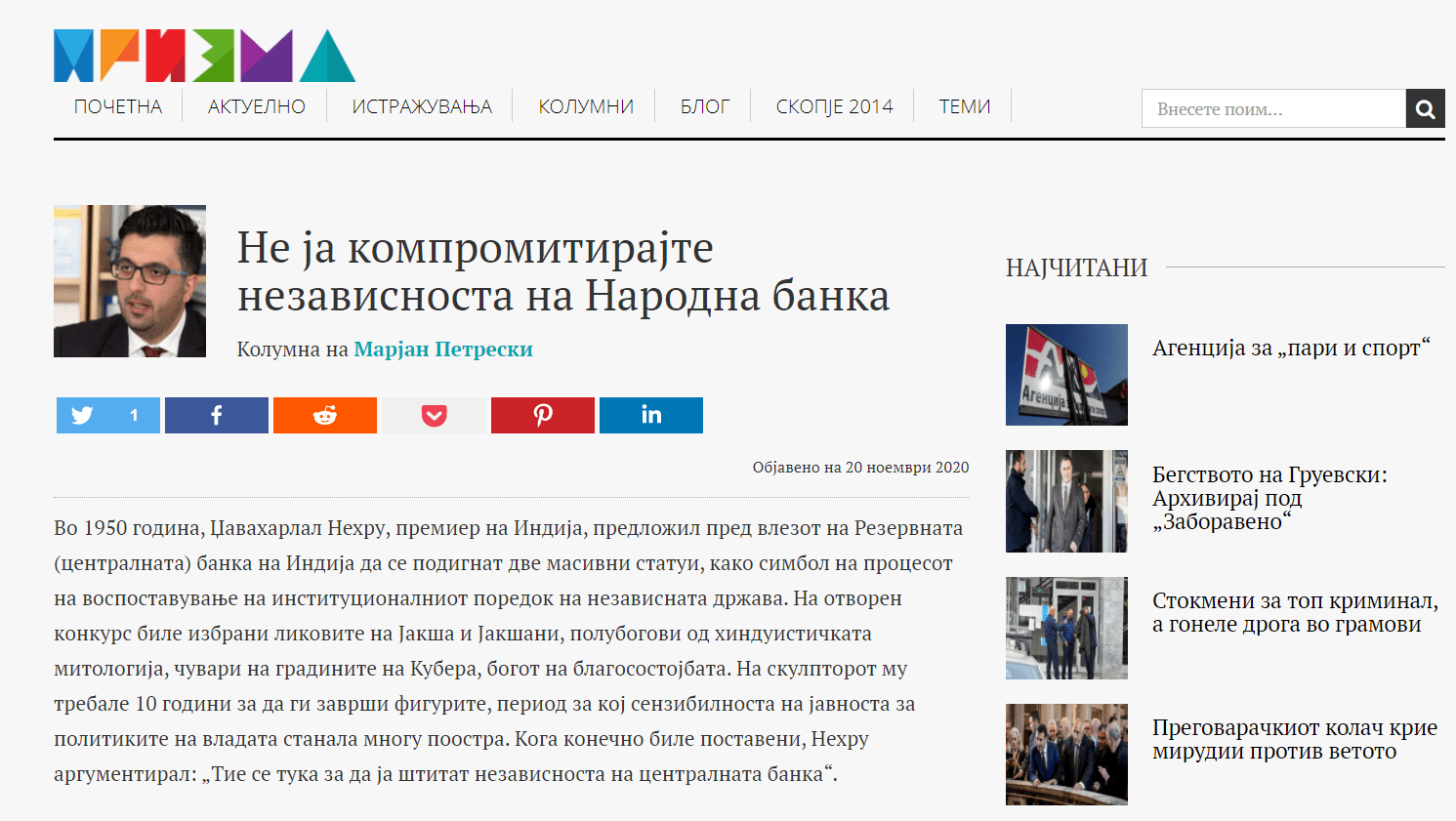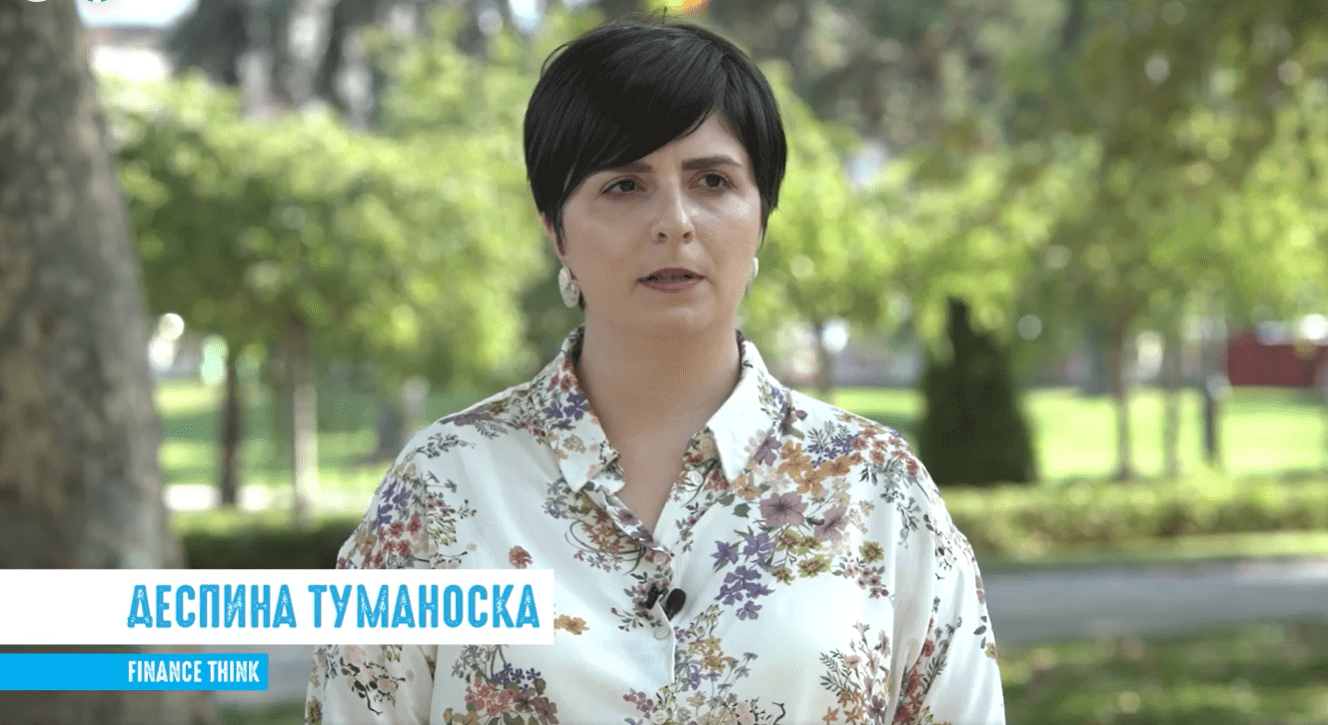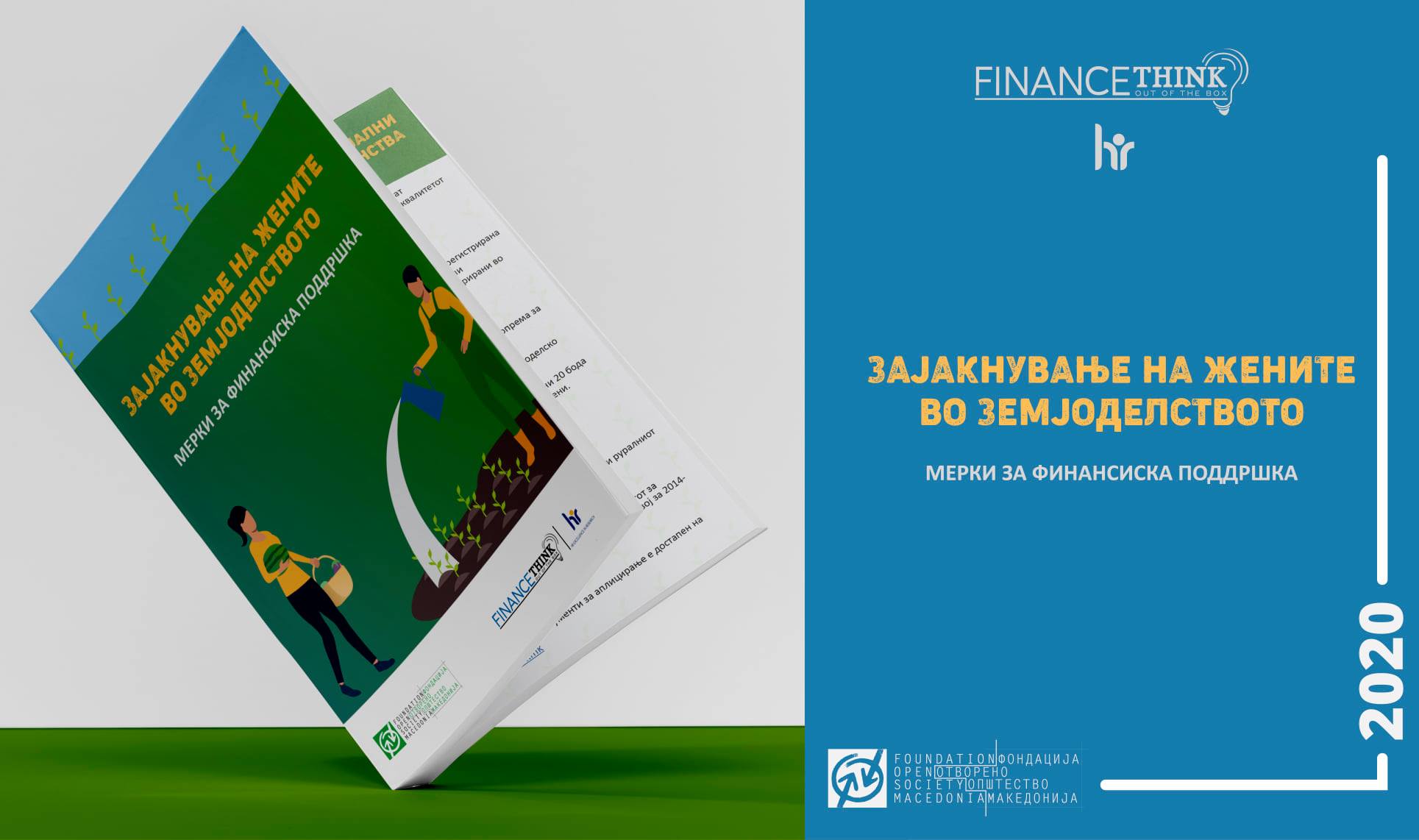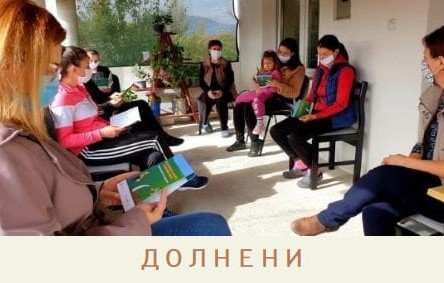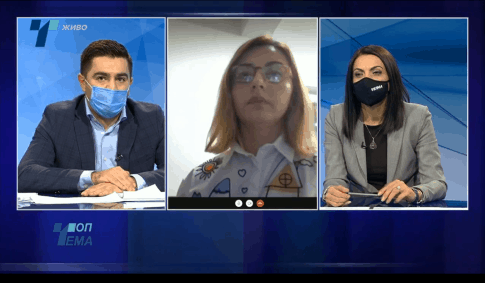A video on gender equality within EU Chapter 23 negotiations
New brochure for women farmers
Rapid assessment of the impact of COVID-19 on selected local programmes and support local planning and budgeting in response to the immediate socio-economic needs of women and men
This proposal envisages the following activities:
- Desk analysis of the LSGUs budgets for 2020 in order to map the envisaged gender-based program, their categorization and comparative analysis with the local policies and strategies for equal opportunities between men and women, in order to evaluate how many local programs and funds were allocated directly for women, before the Covid crisis.
- In-depth interviews with LSGUs’ officials to discuss in details the LSGUs response interventions to address the local citizen’s needs, with reference to the gender impact.
- (Online) focus groups with local citizens to assess their experience and attitudes toward LSGUs’ response measures that tackle the Covid-19 impact.
All activities will result in short gender budget policy analysis (15-18 pages) for each LSGU separately, with included assessment of the LSGUs response interventions from gender perspective, as well as policy and recommendations for improving the gender-budgeting process in the post-Covid period.
Client: UN Women Skopje
Interview: “Srbinoski: Companies have negatively assessed the first package of anti-crisis measures”
Citation: „The fourth package of measures is waiting for the MPs, the business alerts that there is no money for the October salary, the PRO appeals to pay, we will give you“
Statement: “FT analysis of economic measures: Communication is important, but realization is even more important”
Focus group with residents of rural areas for their living in times of Covid-19
Blagica Petreski on current economic topics in Top Tema
ФТ Став бр. 48 за предизвиците на носителот на политиките во сферата на трудот и социјалната политика
Finance Think го честита изборот на новата Министерка за труд и социјална политика.
Изборот на новата Влада и Министерка за труд и социјална политика се случува во период кога економијата ги чувствува последиците од ширењето на коронавирусот Ковид-19 со силен интензитет. Според нашата Студија за политиките 30: Социјалните и економските ефекти од ковид-19 врз децата во Северна Македонија: Брза анализа и препораки за политиката, ефектот од пандемијата врз детската сиромаштија е проценет на 4 процентни поени (пораст од 29.3% на 33.3%), додека ефектот врз вкупната сиромаштија се очекува да биде од слична големина*. Истовремено, по децениското намалување, невработеноста забележува зголемување за над 15.000 лица помеѓу февруари и мај 2020**, иако според проценките од Finance Think (види Бриф за политиките бр. 41: Дали беше неопходна финансиската поддршка на фирмите за задржување на работните места во време на Ковид-19?), владините мерки за борба со економските ефекти од Ковид-19 спасиле околу 60.000 работни места од затварање.
Оттука, главниот предизвик за новата Министерка за труд и социјална политика е санирање на последиците од пандемијата врз животниот стандард на населението, со цел влошувањето на сиромаштијата, губањето на работните места и намалувањето на можностите за вработување да бидат што помали. Во таа насока, правците на дејствување на Министерката во следните домени се од клучно значење за пазарот на труд и системот на социјална заштита.
Прво, Владата се обврза на минимална плата од 20.000 денари во 2024 година. Ова е особено важно ако се има предвид дека моменталната минимална нето плата изнесува 14.928 денари, а нејзиното зголемување е во спротивност со моменталниот притисок на пазарот на труд во поглед на невработеноста. Дополнително, според нашата евалуација на изборните програми во социјалниот домен (види Квалитет на живот 4: „Може ли економијата да ги издржи економските изборни ветувања?“), минимална плата која е конзистентна со порастот на продуктивноста – за што повика и ММФ во Завршниот извештај од мисијата сврзана со Член 4 – во 2024 година изнесува 16.228 денари.
Второ, Владата се обврза на просечна плата од 34.000 денари во 2024 година. Иако, во моментот, пандемијата не предизвикува значајни негативни ефекти врз платите (види последен податок за плати), со исклучок на неколку дејности, а што веројатно во голема мера се должи на субвенционирањето на придонесите (види график), според нашите проекции, просечната плата во 2024 се очекува да достигне 30.961 денари. Според тоа, ја повикуваме Министерката да образложи врз кои основи ќе растат минималната и просечната плата во претстојниот период и дали Владата опстојува на предизборните износи.
Трето, консолидацијата на пензискиот систем е неопходно да продолжи по воспоставената патека од 2019 година, која беше прекината во 2020. Тоа подразбира дека пензиите ќе се усогласуваат со трошоците на живот, со цел одржување на животниот стандард на пензионерите. Предвиденото зголемување на минималната пензија на 10.700 денари ќе изврши неповолно влијание врз пензискиот дефицит, но ефектот нема да биде драстичен. Во секој случај, Министерката е неопходно да ја продлабочи дебатата за пензиската реформа во следните 5 години, во насока на корекциите кај повеќе параметри, како износот на пензиите, заменските стапки, висината на пензискиот придонес, возраста за пензионирање, итн., со цел на среден рок значајно да се зајакне одржливоста на пензискиот систем.
Четврто, реформата на системот на социјална помош и социјални услуги во периодот 2017-2019 година изврши позитивни ефекти врз социјалната заштита на ранливите категории граѓани (види Студија за политиките 31: Социјалните услуги во општините во Северна Македонија: Капацитет, ризици, потреби). Сепак, во оваа област остануваат неколку предизвици: 1. подобрување на таргетирањето на социјалната помош треба да биде перманентен процес, со цел таа да стигнува до оние на кои им е најпотребна, а со цел искоренување на апсолутната сиромаштија во земјата; 2. подигнувањето на системот за интегрирано управување со случај останува предизвик, главно во поглед на поврзувањето на Центрите за социјална работа и Центрите за вработување, со цел лица кои се во системот на социјална помош, а кои се работоспособни, да може побрзо, полесно и посоодветно да се активираат на пазарот на труд и да најдат вработување. Оваа функција на системот е особено важна во и по периодот на Ковид-19 криза, со оглед на растечкиот број лица кои остануваат без работа, и дел од кои ќе спаднат под системот на гарантирана минимална помош; 3. процесот на деинституционализација – еден од најуспешните скорешни процеси во сферата на социјалната политика – да се доведе до целосно заокружување.
Петто, кризата со Ковид-19 откри една слаба алка во системот на социјална заштита – осигурувањето во случај на невработеност. Според моменталното законско решение, право на паричен надомест од невработеност стекнуваат само лицата кои изгубиле работа по вина на работодавачот, но не и оние кои изгубиле работа по своја вина или кои спогодбено го напуштиле работното место. Дополнително, сегашната поставеност доделува помош за многу краток временски период и прелиминарните наоди*** покажуваат дека ефектите не се различни од нула. Посткризниот период треба да се искористи за ревизија на Законот за осигурување во случај на невработеност, со цел да се дизајнира решение кое ќе врши вистинска социјална заштита кај лица кои остануваат без работа, а истовремено нема да го дестимулира понатамошното барање работа ниту ќе поттикнува долги периоди на фрикциска невработеност. Во истата насока, претстојниот период треба да се искористи за реоценка на ефектите од активните мерки за вработување и нивно прилагодување кон променетите потреби и на работниците, на невработените лица, и на работодавачите како резултат на пандемијата.
Шесто, децата, младите и жените, да останат во фокусот на Министерката, како категории кои се сметаат за ризични и ранливи и на пазарот на труд и во социјалната заштита. Фокусот врз децата треба да биде ре-воспоставен, особено имајќи предвид дека нашата Студија за политиките 30: Социјалните и економските ефекти од ковид-19 врз децата во Северна Македонија: Брза анализа и препораки за политиката најде дека ниедна од мерките за справување со последиците од Ковид-19 не беше директно насочена кон децата. Кај младите, првенствено е потребно да се изврши ригорозно оценување на прелиминарно-позитивните ефекти од проектот „Гаранција за млади“, а потоа да се согледа дали е неопходно негово калибрирање кон условите зададени со Ковид-19. Кај жените, амбицијата за родова еднаквост во македонското општество треба да продолжи, првенствено преку дизајнирање нова Стратегија за родова еднаквост, а потоа и преку конкретен сет од мерки со кои таа ќе се поттикнува и негува. Некои неодамнешни придобивки – најзначајно, елиминирањето на суровиот родов јаз во платите (види график) и сведувањето на прилагодениот родов јаз во платите на само 8% во 2019 (види график) – неопходно е да се одржат.
* Finance Think работи на проценка на ефектите од Ковид-19 врз сиромаштијата во Северна Македонија и резултатите се очекува да се објават кон крајот на септември 2020.
** Податоците по мај 2020 не се достапни во време на објавување на овој ФТ Став.
*** Симулации на ефектите од надоместот во случај на невработеност, кои Finance Think ги изведе во МК-МОД Микросимулациски модел за даноци и надоместоци – се`уште необјавени.

